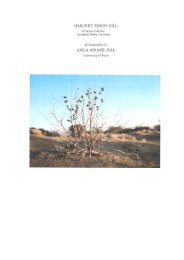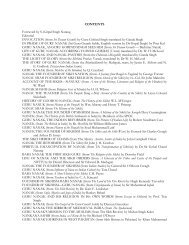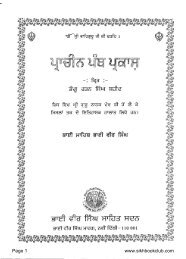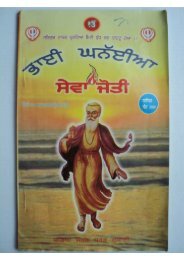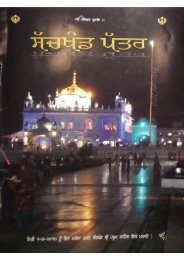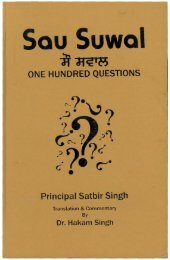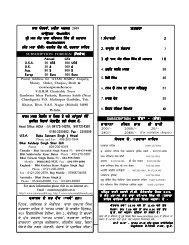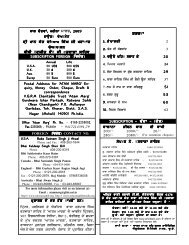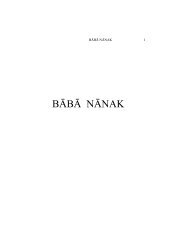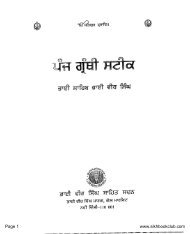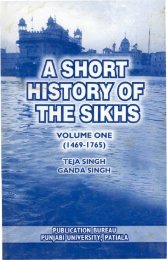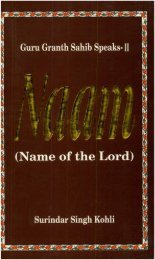You also want an ePaper? Increase the reach of your titles
YUMPU automatically turns print PDFs into web optimized ePapers that Google loves.
Hira Lal and Nur Khan, two of my bosom friends<br />
Suddenly did they accost me, asking:<br />
How in the midst ofMusalmans and Hindus, living happily<br />
together<br />
Had a scourge ofsorts descended from nowhere?<br />
For, 0 Shah Mohammed! Never in the Punjab<br />
Was a third caste ever known to have come.<br />
Was this a mere instinctive reaction of a poet which means<br />
a higWy sensitive mind in tune with reality or was he reading<br />
it as a writing on the wall? Well, it could be both.<br />
After going over all the ups and downs of the First Punjab<br />
War which leaves him almost broken, he fmds an abiding ray<br />
of hope in this divinely-coordinated Hindu-Muslim togetherness.<br />
In a way, he rounds off his ballad on this very hopeful note.<br />
Says he, in stanza 103:<br />
God willing, good things shall happen again.<br />
What if the soldiers have lost the lustre of their mien ?<br />
Great commonality does exist between the Hindus and the<br />
Musalmans.<br />
None should ever dare break this common silken bond.<br />
The new rulers have no ear for anyone.<br />
Drunk with themselves, oblivious they're of our pain<br />
o Shah Mohammed! All wealth is today garnered.<br />
By sons of moneylenders and 'gumashtas' in the main.<br />
This happy togetherness peers out from each of his lines<br />
in the entire narrative of the ballad. The conduct of the Musalman<br />
armies and the public at large was that of the highest order. There<br />
was not even a remote suggestion that the Feringhee was the<br />
deliverer of the Muslims from the yoke of the Sikhs, something<br />
which became such a fact of life not long afterwards. Did the<br />
British not try this card? Yes, they did. Let us see how.<br />
Here we must refer to the Wahabi movement which the<br />
British had engineered in India to cause disaffection among the<br />
Punjabi Muslims against the Khalsa Darbarwhich, to all intents<br />
and purposes, could be identified as a dangerous Hindu revival<br />
(31)



